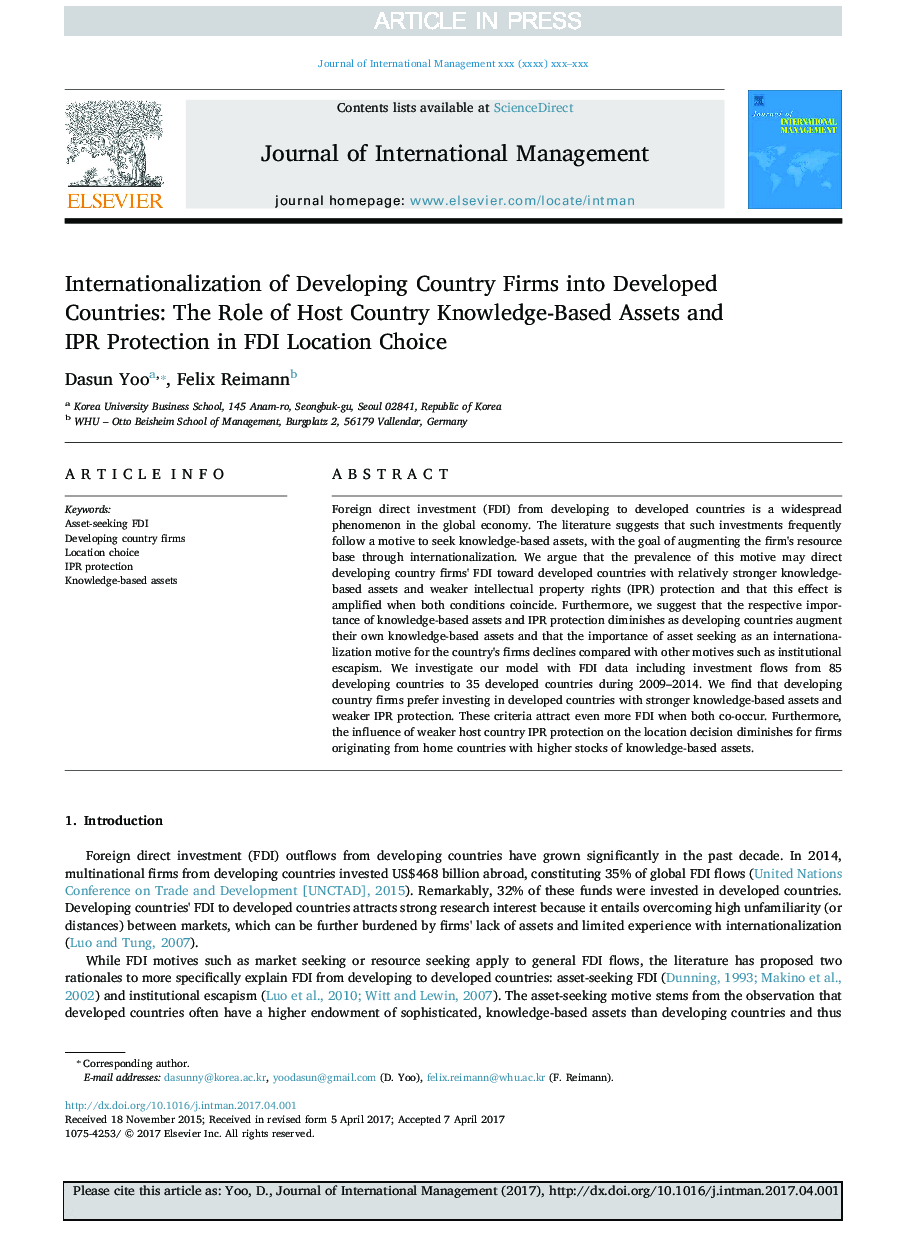| Article ID | Journal | Published Year | Pages | File Type |
|---|---|---|---|---|
| 5110105 | Journal of International Management | 2017 | 13 Pages |
Abstract
Foreign direct investment (FDI) from developing to developed countries is a widespread phenomenon in the global economy. The literature suggests that such investments frequently follow a motive to seek knowledge-based assets, with the goal of augmenting the firm's resource base through internationalization. We argue that the prevalence of this motive may direct developing country firms' FDI toward developed countries with relatively stronger knowledge-based assets and weaker intellectual property rights (IPR) protection and that this effect is amplified when both conditions coincide. Furthermore, we suggest that the respective importance of knowledge-based assets and IPR protection diminishes as developing countries augment their own knowledge-based assets and that the importance of asset seeking as an internationalization motive for the country's firms declines compared with other motives such as institutional escapism. We investigate our model with FDI data including investment flows from 85 developing countries to 35 developed countries during 2009-2014. We find that developing country firms prefer investing in developed countries with stronger knowledge-based assets and weaker IPR protection. These criteria attract even more FDI when both co-occur. Furthermore, the influence of weaker host country IPR protection on the location decision diminishes for firms originating from home countries with higher stocks of knowledge-based assets.
Keywords
Related Topics
Social Sciences and Humanities
Business, Management and Accounting
Business and International Management
Authors
Dasun Yoo, Felix Reimann,
